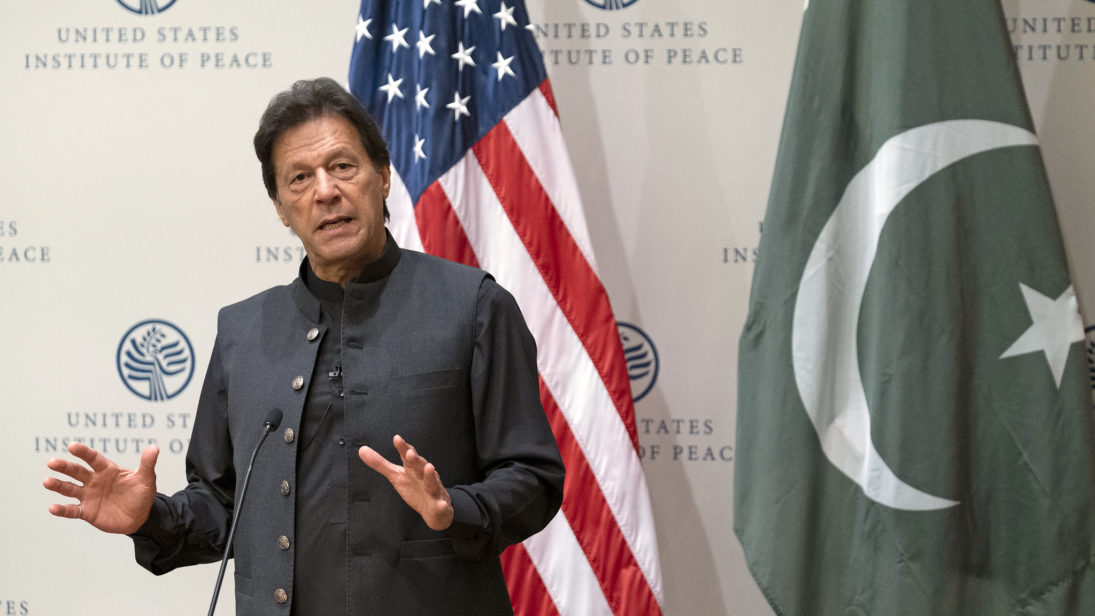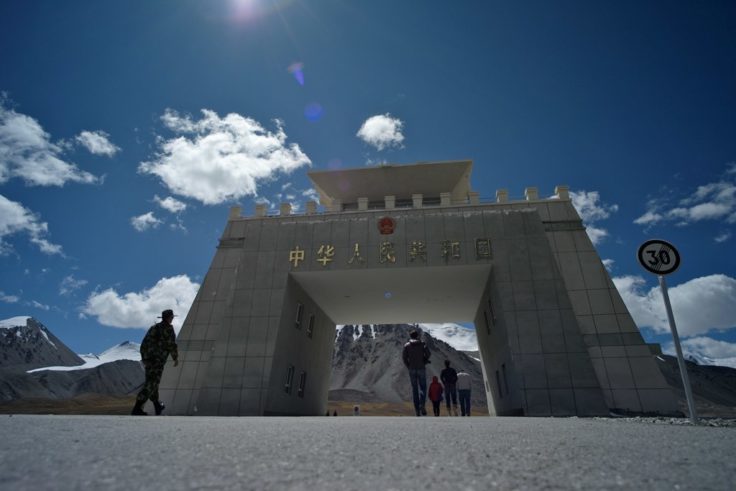
The upcoming U.S. presidential election will be a defining moment not only for the American people, but also for the country’s future trajectory as a global leader. In his four years as President, Donald Trump has shown his isolationist tendencies and promises to continue an “America First” approach into a second term whereas Democratic presidential nominee Joe Biden has campaigned on rebuilding America’s leadership role in global institutions. Notwithstanding the sharp contrast in the statements from Trump and Biden on various domestic and foreign policy issues, their take on core policies concerning South Asia, for example, the U.S. withdrawal from Afghanistan, India’s pivotal role in the Indo-Pacific, and countering the rise of China, have a certain level of unanimity; hence, there is less likelihood of any fundamental change in U.S. policy in the region. Nonetheless, there are various policy aspects, of a potential second-term Trump or first-term Biden presidency, regarding Pakistan and the region, that merit substantial reconsideration after the elections.
Afghanistan in Pak-U.S. Relations
The overall nature of the Pak-U.S. relationship has been transactional – both states have enjoyed good relations when their interests converged. Despite the absence of common strategic objectives and long-term mutual interests, many layers in Pak-U.S. bilateral relations were not mutually exclusive. In the past two decades specifically, bilateral relations have witnessed various highs and lows, but both countries have continued to engage closely even when diverging on certain issues.
After facing President Trump’s excoriation for alleged “lies and deceit” and cessation of U.S. security assistance, Pakistan finds close convergence of interest with the U.S. on the Afghan Peace Process that has enabled both states to work closely to bring the Afghan Taliban to the negotiation table and eventually participate in the intra-Afghan dialogue. In order to sustain this partnership and preserve mutually beneficial relations after the U.S. elections, it would be important to maintain and expand the Doha spirit. Pakistan has rightly earned acknowledgment for its positive role in bringing the Afghan Taliban to the negotiating table – a necessary prerequisite to provide U.S. forces a graceful exit from Afghanistan.
However, there is a risk that once U.S. withdrawal is complete, the United States’ interest in the region will diminish with or without the initiation of a genuine reconciliation process in Afghanistan. While both Trump and Biden have favored U.S. withdrawal from Afghanistan, the Trump administration, which has pledged a complete withdrawal, seems less likely to take interest in a post-withdrawal Afghanistan. On the contrary, Biden has announced a more measured policy by keeping some residual forces in Afghanistan for the sustenance of peace dividends. A potential failure in maintaining lasting peace in the country will be disastrous for bilateral relations and regional security and may roll back the existing goodwill. Therefore, it should be one of the top priorities of the new administration to bring about a smooth as possible ending to the Afghanistan conundrum. Continuous engagement with Pakistan, which shares a 1600-mile long border with Afghanistan, hosts 3 million Afghan refugees, and has persuaded the Taliban to partake in negotiations, would be necessary in this regard to avoid any mistrust and accusations.
A potential failure in maintaining lasting peace in the country will be disastrous for bilateral relations and regional security and may roll back the existing goodwill.
Pakistan-India ties and U.S.-China tensions
The new U.S. administration must focus on the deteriorating security situation in South Asia. Owing to the U.S.-China confrontation and growing hostility between China and India with the ongoing military standoff in the Himalayas, erstwhile subtle regional divisions have come into sharp focus with grave implications for regional security. India-Pakistan bilateral relations are at their worst – continuous cross-firing at the Line of Control and threats from Indian senior military and political leadership to attack Pakistan-Administered Kashmir and Gilgit-Baltistan have threatened regional security dynamics. In the absence of any direct communication, the inadequacy of existing confidence-building measures (CBMs), and the non-availability of other risk reduction measures, chances of an advertent or inadvertent crisis have increased manifold.
Current U.S. policy priorities in the Indo-Pacific stand at odds with its perceived leadership role as a mediator in South Asian crises. Steady advancements in the Indo-U.S. strategic partnership, as evidenced by major defense and intelligence-sharing agreements, have shifted the power balance heavily in favor of India, thereby affecting the regional security equilibrium. Unprecedented criticism by senior U.S. officials of Pakistan over the lack of transparency of China-Pakistan Economic Corridor (CPEC) projects, as well as criticism over discrimination against minorities, and restrictions against journalists in Pakistan, while doing little to address India’s religious discrimination and human rights violations in Kashmir following the revocation of the region’s special semi-autonomous status under Article 370 of the Indian Constitution, has further strengthened the perception that Pakistan has received unfair treatment. India’s preferential treatment will inevitably push Pakistan to strengthen its alliance with China leading to more regional polarization.

Despite some critical statements from Joe Biden and the Democratic nominee for Vice President Kamala Harris on the Indian government’s actions in Kashmir, there is no certainty that a new administration would take a tougher stance against India over the Kashmir issue. Biden may not have turned a complete blind eye to the Modi government’s divisive policies in general, but India’s role as a strategic partner will continue to outweigh the risks to democratic values. In terms of crisis management, while India’s position as a strategic partner shall persist, both Trump and Biden are likely to take proactive measures to regain the U.S.’s role as a balancer between India and Pakistan to help avoid any inadvertent escalation in the region.
Past experience suggests that both countries made positive developments when they worked together to counter terrorism and to bolster nuclear safety and security.
Terrorism and Nuclear Issues in Pak-U.S. relations
Pakistan is likely to face increased pressure on issues of terrorism and its nuclear weapon development – especially tactical nuclear weapons and sea-based nuclear deterrence – in the coming years. William E. Todd’s confirmation to be the next U.S. ambassador to Pakistan suggests that Pakistan will face pressure on these issues regardless of who is in office. After the U.S. withdrawal from Afghanistan, these issues are likely to take center-stage, and if not dealt with in a cooperative manner, can attenuate Pak-U.S. relations. Past experience suggests that both countries made positive developments when they worked together to counterterrorism and bolstering nuclear safety and security. Pakistan’s nuclear program is going to be a major concern particularly for the Biden administration. Unlike the Trump administration, nonproliferation is a priority for Democrats and Biden has consistently criticized Pakistan over its nuclear program. Nonetheless, this also gives an opportunity to address bilateral concerns in a more cooperative manner. To build bilateral confidence and establish a cooperative mechanism on all divergent points, one important step could be the revival of an official strategic dialogue between Pakistan and the United States. Similar to the previous dialogue, Pakistan and the United States could cooperate in diverse fields such as trade, economics, countering terrorism, defense and security, and regional issues.
Conclusion
Considering Trump and Biden’s similar policies on and approaches to regional concerns in South Asia, the overall nature of the Pak-U.S. partnership is likely to remain largely the same after the election. While Prime Minister Imran Khan managed to develop good personal relations with President Trump during his official visit to the United States last year, it was primarily Pak-U.S. convergence in Afghanistan that brought the two governments closer. Sans this major point of convergence, the relationship with the new administration will be challenging for Pakistan. There is a growing realization in the United States and Pakistan that continuous engagement is important to strengthen their bilateral relations. However, it is important to consider Pakistan’s unique concerns, and refrain from building bilateral ties only through the lens of regional concerns in India, Afghanistan, Iran, or China. While this external lens will continue to play a role, Pakistan’s importance in the region and potential place in any future security architecture is too important to be ignored at the expense of other regional policy goals. Pakistan will continue to be an important player in solving America’s Afghanistan problem. Further, Pakistan’s role in balancing regional partnerships means it has the potential to mediate tensions with Iran, and, could serve, yet again, as a bridge to address deteriorating relations between the U.S. and China.
Editor’s Note: The U.S. Presidential Election, held on November 3, 2020, holds significant implications for the United States, both domestically and in how it engages with the world. In this series, SAV contributors from Afghanistan, India, and Pakistan discuss how the election outcome may affect U.S. relations with their respective countries. Read the full series here.
***
Click here to read this article in Urdu.
Image 1: U.S. Institute of Peace via Flickr
Image 2: Banalities via Flickr


